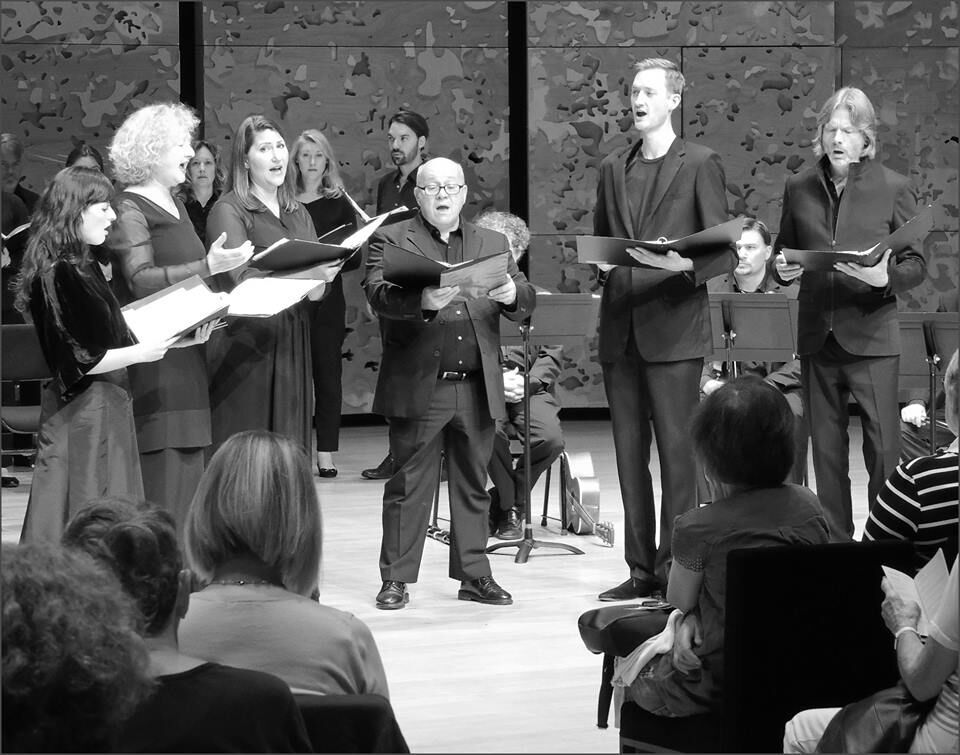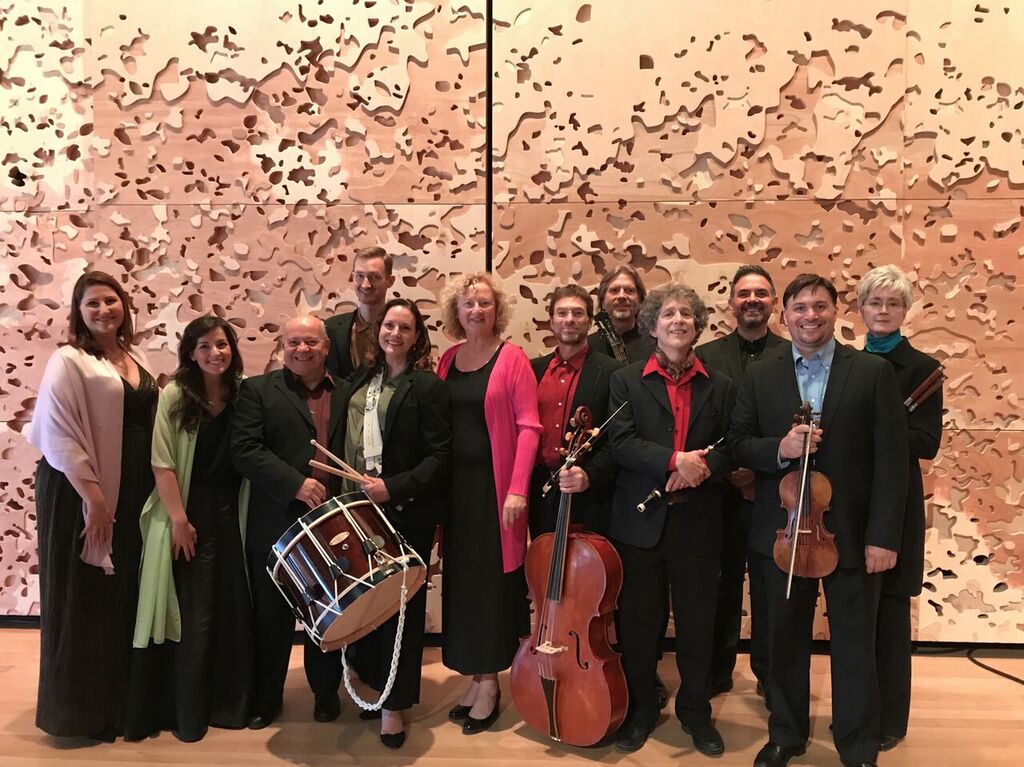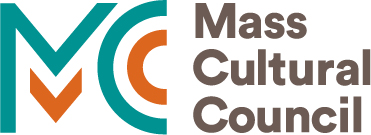City on the Hill:
Early Hymns and Spirituals
of Boston and New England

Program Notes
The very idea of America, beginning with the first European settlers, involves the notion of exceptionalism. In 1630, aboard the Arbella, John Winthrop preached to the Puritans as they sailed to the shores of New England: ‘We will see that the God of Israel is for us … We will be like a city on the hill. The eyes of all are fixed on us.’
The dissidents, founding Boston that same year, considered it as exceptional city first of all for religious and spiritual reasons, in resistance to the corrupt practices of England. Then, as the new city grew, it was to provide exceptional examples of education, of politics, of crafts and commerce, of the arts; and as far as we are concerned, music.
At the start, Puritan singing and music were of the simplest kind, far from the great Anglican liturgies, and their sumptuous, almost-papist music. It became necessary, however, to regulate the imposed simplicity. Lest the psalmondy degenerate into the “complaints, efforts, cries, screams” excoriated by the Englishman Thomas Mace (1676). To maintain order and regularity in the New World, the Bay State Psalms were printed in 1640, texts only, with a short list of acceptable tunes appended at the end. Of course, there was no question of adding any instrument whatsoever.
But the energy emanating from these new lands required richer sounds, and innovative, democratic educational measures. Andrew Law was one of these educator-pastors, creating a music-teaching movement by an easy and understandable method of solemnization: the forms of the notes on the page indicate the tones and semi-tones. A large publishing industry grew which allowed all musicians and non-professionals to read and participate in liturgical and para-liturgical singing. Printing presses in Cambridge, across the river; Exeter, New Hampshire, and Northhampton produced songbooks, Williams Billings, a tanner by trade but a self-taught musical genius, infused unparalleled energy into his compositions. Thanks to him and others, a new kind of spiritual song, descended from English church music, but authentically American, begins to flourish in New England.
Yet another vein of sacred song begins to grow as well, north of Boston. The Vermont tavern keeper Jeremiah Ingalls eschews, for the most part, the models of church psalmody, and creates partsongs, with religious texts, certainly, but derived from secular ballads, marches, tavern songs, and jigs. The Shakers, too, make their own kind of music, creating a rich repertoire of monody in which the modes and motifs of English folksong and dance inspire the new songs of the believers. A number of these Shaker spirituals make explicit, as well, faith in a newly open and egalitarian society, built upon the fair soil of America’s land.
The spectacular energy of all these New World creations were not to the taste of the nineteenth century Boston elite. The rough-hewn manner of these working-class artisans was soon replaced in Boston songbooks by more staid and insipid pieces from the “better music” movement. One outlying Boston songbook, however, The American Vocalist (1858) preserves the more vigorous popularizing manner, which never died out completely here at home, and which in fact took on new life and energy in the South…but that is another story! Notwithstanding opposition, the City on the Hill grew, and flourished, bypassing the elites, taking its uniquely American strength from its roots in the spirit of the people. And its towers and spires continue to inspire, and to bring joy and hope.

Program
“That soe wee may sing in Sion” — The Bay Psalter (Cambridge, MA, 1640)
PROLOG |
|
| In Yonder Valley | Shaker: Father James Whittaker (1751-1837), Sabbathday Lake, ME |
| Hatfield | William Billings (1746 – 1800), The Singing Master’s Assistant, Boston, MA (1778) |
| Vous tous qui la terre habitez (Psalm 100) | Psautier de Genève (1551) |
| Old Hundred | Text: Nahum Tate and Nicholas Brady (1696) Musique: Bay Psalm Book, Boston, MA (1698) Harmony of Harmony, Northhampton, MA (1802) The public is invited to sing along with us |
| Africa | William Billings, The Singing Master’s Assistant |
SIN AND JUDGEMENT |
|
| Windsor (Psalm 130) | English (1591) & Bay Psalm Book (1698) |
| Bangor | William Tans’ur (1706-1783), The American Harmony, Newburyport, MA (1771) |
| Judgement Hymn | Jeremiah Ingalls (1764-1838), The Christian Harmony, Exeter, NH (1805) |
| Windham | Text: Isaac Watts (1674-1748) Musique: Daniel Read The American Singing Book, New Haven, CT (1785) |
| Pennsylvania | Jeremiah Ingalls, The Christian Harmony |
TAVERN AND TABERNACLE |
|
| The Cuba March | Anglo American March (18th c.) |
| The New Union | Jeremiah Ingalls, The Christian Harmony, Exeter, NH (1764-1838) |
| The Devil’s Nine Questions | Anglo-American Ballad (?) |
| Innocent Sounds | Jeremiah Ingalls, The Christian Harmony, Exeter, NH |
| Dog and Gun (instrumental) | Manuscript (late 18th c.) |
| The Lord Will Provide | Jeremiah Ingalls, The Christian Harmony |
| The Miller of Dee & Humility |
The American Musical Miscellany, Northampton, MA (1798) |
| The Heavenly Courtier | Jeremiah Ingalls, The Christian Harmony |
| Captain Kidd (instrumental) | English Ballad (18th c.) and American (19th c.) |
| How Precious is the Name | The American Vocalist, Boston, MA (1858) The public is invited to sing along with us |
| Come all ye maidens fair & The Rose of Edinburgh |
English Traditional (18th c.) |
| O we have found a lovely vine | Shaker, Canterbury, MA (1829) |
| Lovely Vine | Jeremiah Ingalls, The Christian Harmony |
AT THE RIVER |
|
| By Zion’s Gentle Rivers | Shaker, Harvard, MA (1847) |
| Jordan | William Billings, The Suffolk Harmony, Boston (1786) |
| Deal Gently with thy Servants | The American Vocalist |
| Shall We Gather at the River | The Revivalist The public is invited to sing along the refrain with us |
| Roll Call | The Revivalist |
| Burst, ye emerald gates | The American Vocalist The public is invited to sing along with us |
Anne Azéma, 2019



